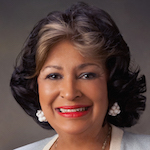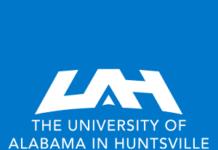 Carolyn Meyers, president of Jackson State University, announced that she is resigning, effective November 1. The university did not offer any explanation for the resignation. In a short statement, Dr. Meyers said that she was leaving “out of genuine love and pride in the university.”
Carolyn Meyers, president of Jackson State University, announced that she is resigning, effective November 1. The university did not offer any explanation for the resignation. In a short statement, Dr. Meyers said that she was leaving “out of genuine love and pride in the university.”
However, recently it was reported that the university’s cash reserves had dropped by 89 percent over the past five years from more than $37 million to $4.2 million. Jackson State University owes $8.74 in debt for every $1 held in its unrestricted fund balance
In a statement issued five days before President Meyers resigned, Glenn Boyce, Commissioner of Higher Education for Mississippi, stated that “Since May 2014, the Board of Trustees, the Commissioner of Higher Education and IHL Staff have communicated concerns over the university’s financial position to Jackson State University personnel, including the Chief Financial Officer and President. The annual financial statement for FY 2016 received by IHL Staff in August 2016 indicated that the situation has escalated from a concern to a level serious enough to require immediate intervention.”
Dr. Meyers was named the 10th president of Jackson State University on December 1, 2010, and began serving in the role in January 2011. Just last year, her contract was extended for four years.
Before being named president of Jackson State University, Dr. Myers was president of Norfolk State University in Virginia. Earlier, she served as provost and vice chancellor for academic affairs for North Carolina A&T State University in Greensboro, where she was a tenured professor of mechanical engineering and dean of the College of Engineering.
President Meyers earned a bachelor’s degree in mechanical engineering from Howard University in Washington, D.C. She holds a master’s degree in mechanical engineering and a Ph.D. in chemical engineering from the Georgia Institute of Technology in Atlanta.












This article points out a major area that all colleges and universities should address and that is providing in-service training for the Board of Trustees that will help mitigate unexpected problems that blind side the entire institution. Boards are supposed to provide oversight and to ensure that an institution’s mission is achieved with integrity and adherence to the criteria outlined by both the accrediting agency and state standards. When something like this occurs, it probably can be attributed to a major disconnect in board oversight and need to know information that spiraled out of control. It is hoped that backtracking of the financial chain of events will uncover the factors that led to the significant depletion of cash reserves.
Wow, I interviewed for a job with Jackson State University and I never heard back from them. Thanks for the publication of the article, I understand why there was no follow-up with me.
This reminds me of an educational law class I took years ago when we discussed Substantive Due Process. In short, it talks about governmental agencies who make bad decisions and in this case, 33 million. Who let’s this happen? I was reading just yesterday about John Hopkins University. Their endowment is 3.5 billion. Jackson State University may be done as we know it. Another great institution possibly gone forever. Sad.